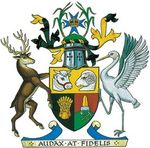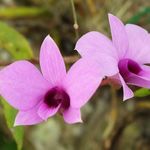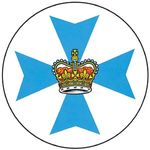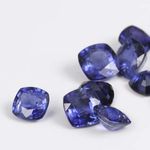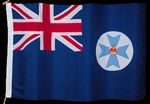Facts about Queensland - About Queensland Day
←
→
Page content transcription
If your browser does not render page correctly, please read the page content below
Facts about
Queensland
About Queensland Day History of Queensland Day
Queensland Day is a celebration of the state’s culture, The move towards statehood for Queensland began
heritage, people and industry. with a public meeting in 1851 to consider separation from
New South Wales.
The celebration centres around the state’s birthday
on 6 June and acknowledges the ‘birth’ of Queensland As the push for separation gained momentum,
as a separate colony in its own right. Queen Victoria was approached to consider establishing
a separate colony based on Moreton Bay. The Queen gave
Since 1981, Queensland’s birthday has been officially her approval and signed the Letters Patent on 6 June 1859,
promoted by the Queensland Government and expanded now known as Queensland Day. Not surprisingly, she
to include a series of events and celebrations. favoured the name Queensland over suggestions to call
it Cooksland in honour of Captain James Cook.
A highlight of Queensland Day celebrations is the
announcement of the prestigious Queensland Greats Awards. The new colony of Queensland was established. With the
word ‘Separation’ painted on its hull, the ship Clarence
Communities can participate in Queensland Day by lighting
sailed into Brisbane on 10 July to be greeted by a jubilant
or decorating key landmarks, buildings and bridges maroon.
crowd eagerly anticipating the news of separation.
In celebrating Queensland Day, the community can
They welcomed Clarence with a 14-gun salute, a ‘blue light’
share a sense of pride in being both Australian and
display and fireworks.
a Queenslander. It is a time to reflect on how lucky
we are to be part of such a wonderful state. On 20 July 1859, celebrations resumed with the news
Sir George Ferguson Bowen would be the state’s first
Come on Queensland! Show us what you love most about
Governor. Fireworks, cannon fire, flag raisings and the
this magnificent state of ours.
sound of a gun shot expressed the public’s sentiment.
On 10 December 1859, Governor Bowen arrived in Brisbane
to a civic reception in the City Botanic Gardens.
He officially marked the historic occasion of statehood
by reading a proclamation from the verandah of the
Deanery of St John’s Cathedral.
DPC7656
queenslandday # qldday # myQLDstory qld.gov.au/queenslanddayOur state emblems
Coat of Arms State flag
Queen Victoria granted the Queensland The Queensland flag features two
Coat of Arms, the oldest State Arms components: the Union Jack in the
in Australia, to the Colony of Queensland upper left corner and the state badge.
in 1893.
The state flag was first introduced
The Coat of Arms symbolises the Queen’s in 1876 when Queensland was a
constitutional authority in the state. self-governing British colony with its
It was the first Arms assigned to a British own navy.
colony since Charles II granted Jamaica its Arms in 1661.
The Queensland Coat of Arms has been used as the State badge
government’s corporate logo since August 2012.
The badge of Queensland was developed
from the need to include a seal or badge
Meaning behind the symbols in the design of the state flag.
Primary industries take pride of place on the Coat of Arms,
in line with economic trends in the nineteenth century. The badge was adopted as part of the
state flag on 29 November 1876. It is
Rural activities are represented by a sheaf of wheat, officially described as ‘On a Roundel
the heads of a bull and a ram, and two stalks of sugar Argent a Maltese Cross Azure
cane surrounding the state badge at the top. surmounted with a Royal Crown’. It was designed by
William Hemmant, the then Queensland Colonial
The prominence of mining is represented by a column Secretary and Treasurer.
of gold rising from a heap of quartz.
It is not known why this was chosen as a suitable badge.
On the Coat of Arms is Queensland’s state motto, However, it is interesting to note a Maltese Cross is the
Audax at Fidelis, which means ‘bold but faithful’. final stop on the legend band around the Great Seal
of Queensland (1859). The Royal Crown also appears
In 1977, during Her Majesty The Queen’s Silver Jubilee year,
on this seal.
the Coat of Arms was given a more modern appearance
when Queen Elizabeth II granted the addition of supporting In 1893, the badge was incorporated into the Queensland
animals, the brolga and the red deer. Coat of Arms.
The brolga is one of Queensland’s most distinctive birds The Royal Crown has been altered slightly since the
and symbolises the native population. The red deer was badge was first adopted under Queen Victoria’s rule,
introduced from the royal herds near London and as succeeding monarchs have preferred different
represents the old world. interpretations of the Crown.
It was last altered in 1963, after Queen Elizabeth II
decided to reproduce the Crown during her reign.
DPC7656
queenslandday # qldday # myQLDstory qld.gov.au/queenslanddayAnimal (faunal) emblem Aquatic emblem
The koala was officially named the The Barrier Reef Anemone Fish was
animal (faunal) emblem of Queensland officially named Queensland’s aquatic
in 1971, after a newspaper poll emblem in March 2005. The public
showed strong public support for nominated the species as their preferred
this endearing marsupial. representative for Queensland.
The Queensland Government introduced The Australian Underwater Federation
the poll due to a proposal by state originally developed the idea to introduce
tourism ministers for all states to adopt an official aquatic emblem for Queensland. As a result, a
a faunal emblem. panel of experts, chaired by the Queensland Museum,
suggested a shortlist of aquatic species.
Floral emblem The public was then invited to have its say on the shortlist
The Cooktown orchid became during an eight-week consultation process.
known as Queensland’s floral emblem Image © Great Barrier Reef Marine Park Authority
in 1959, during celebrations to mark
the state’s centenary.
State gem
Before this, the distinctive native flower The sapphire gemstone, a variety of
had long been popularly considered as the mineral corundum, was originally
Queensland’s unofficial floral emblem. discovered in central Queensland in the
This was according to a government-sponsored newspaper early 1870s. It continues to be found
public opinion poll taken in the centenary year. in the central and northern parts
The State Parliament endorsed the popular choice in the of the state.
now repealed Badge, Arms, Floral and Other Emblems
of Queensland Act 1959.
State colour
The orchid was commemorated in 1968 on the 25 cent
stamp and in 1998 on the $1.20 stamp. On 13 November 2003, the Governor
in Council officially named maroon
Image © Murray Fagg Australian National Botanic Gardens
as Queensland’s state colour.
Bird emblem This announcement was made as
a result of a long-held, but informal,
The brolga has featured on the tradition of using maroon
Queensland Coat of Arms since 1977. to represent Queensland.
It wasn’t until January 1986 that it was
announced as the official bird emblem Maroon has traditionally been associated with Queensland
of Queensland. sport in particular and is the official colour for the Maroons
State of Origin rugby league team.
DPC7656
queenslandday # qldday # myQLDstory qld.gov.au/queenslanddayYou can also read



